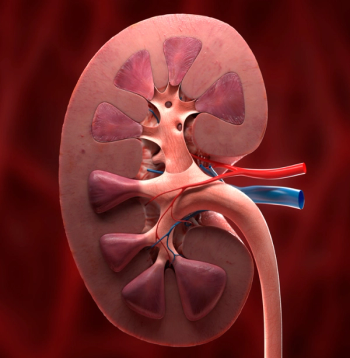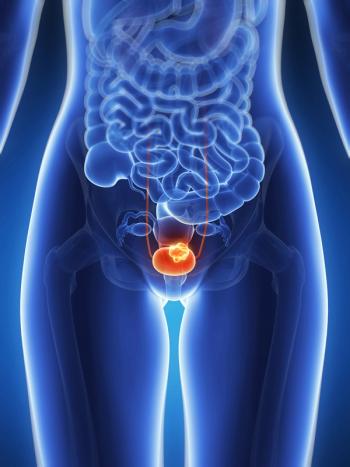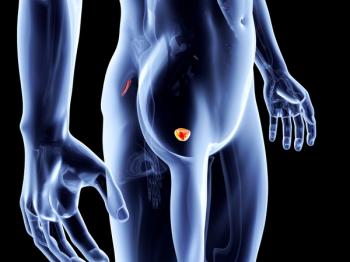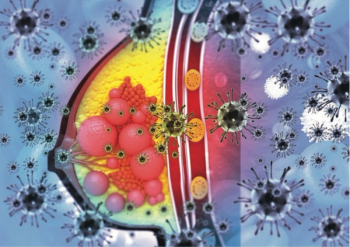
Ivonescimab plus chemotherapy following progression after a third-generation TKI showed consistent efficacy across EGFR-mutated NSCLC subgroups.

Your AI-Trained Oncology Knowledge Connection!


Ivonescimab plus chemotherapy following progression after a third-generation TKI showed consistent efficacy across EGFR-mutated NSCLC subgroups.

New research suggests high levels of CD163-positive tumor-associated macrophages may significantly improve nivolumab efficacy in metastatic RCC.

Researchers developed a CAR T-cell therapy to target CAIX/CD70 overexpression for patients with clear cell RCC.

Bexobrutideg, a novel BTK degrader, demonstrated preliminary clinical activity and a consistent safety profile in patients with relapsed/refractory chronic lymphocytic leukemia.

Phase 3 data demonstrate the potential utility of BRAF/MEK inhibition in the adjuvant setting for patients with stage IIB/IIC BRAF V600–mutant melanoma.

Data from the IGNYTE trial demonstrate the development of a robust systemic antitumor response following treatment with RP1.

Among 44 patients with EGFR-positive non–small cell lung cancer who discontinued docetaxel, 36.4% crossed over to the sac-TMT arm.

The risk of progression was reduced with the use of durvalumab/CRT for advanced cervical cancer, according to an exploratory ctDNA analysis.

Safety and efficacy were noted with LB2102 for patients with small cell lung cancer and large cell neuroendocrine carcinoma.

At a median follow-up of 17.0 months, the sintilimab/chidamide regimen elicited 1-year PFS and OS rates of 95.7% and 95.3%, respectively.

With longer-term follow-up, investigators observed no new safety signals for zanubrutinib in patients with CLL or SLL harboring 17p deletions.

Event-free survival events were observed in 37.5% of patients with resectable locally advanced HNSCC who took pembrolizumab vs 45.3% in those who did not.

Complete response rates were observed consistently across patient subgroups in those with high-risk BCG-unresponsive non-muscle invasive bladder cancer.

Post hoc analysis of the NAPOLI 3 trial suggests that proactively managing NALIRIFOX-induced diarrhea could allow patients with PDAC to remain on treatment longer.

Olaparib plus abiraterone improved radiographic PFS and overall survival in mCRPC patients with germline or somatic BRCA mutations vs placebo plus abiraterone.

The TiNivo-2 trial found comparable PROs with tivozanib plus nivolumab vs tivozanib monotherapy in advanced clear cell RCC.

Results from the FELIX study showed that obe-cel induces high rates of MRD-negative remission in relapsed/refractory B-ALL, leading to improved EFS and OS.

At a longer follow-up, adagrasib with cetuximab maintained meaningful efficacy and elicited an ORR of 34%, results from the phase 1/2 KRYSTAL-1 showed.

Ultra-sensitive ctDNA testing identified ctDNA at baseline in patients with HR–positive breast cancer, results from the PELOPS trial showed.

Results from the CLOVER WaM trial saw a clinical benefit rate of 98.2% in patients with Waldenström Macroglobulinemia treated with Iopofosine I 131.

Findings from a multi-institutional study show an increased risk of developing high-grade immune-related AEs among select older patients with early-stage breast cancer.

Atrial fibrillation occur at a smaller likelihood with second-generation BTK inhibitors vs first-generation BTK inhibitors in B-cell hematologic cancers.

Amivantamab/lazertinib also reduces the risk of second progression or death compared with osimertinib in the phase 3 MARIPOSA trial.

The safety profile of oral azacitadine was shown to be similar across the 200-mg and 300-mg arms in patients with lower- to intermediate-risk MDS.

Six months of intensified androgen deprivation therapy plus next-generation anti-androgens may be an attractive option for those with prostate cancer and rising prostate specific antigen levels following prostatectomy.

Data from the phase 2 NAVIGATE trial support the wider adoption of next-generation sequencing panels including NTRK gene fusions in the treatment of those with gastrointestinal cancers.

Asciminib results in greater efficacy, safety, and tolerability compared with bosutinib in patients with chronic myeloid leukemia, according to findings from the phase 3 ASCEMBL study.

Published: December 15th 2023 | Updated: